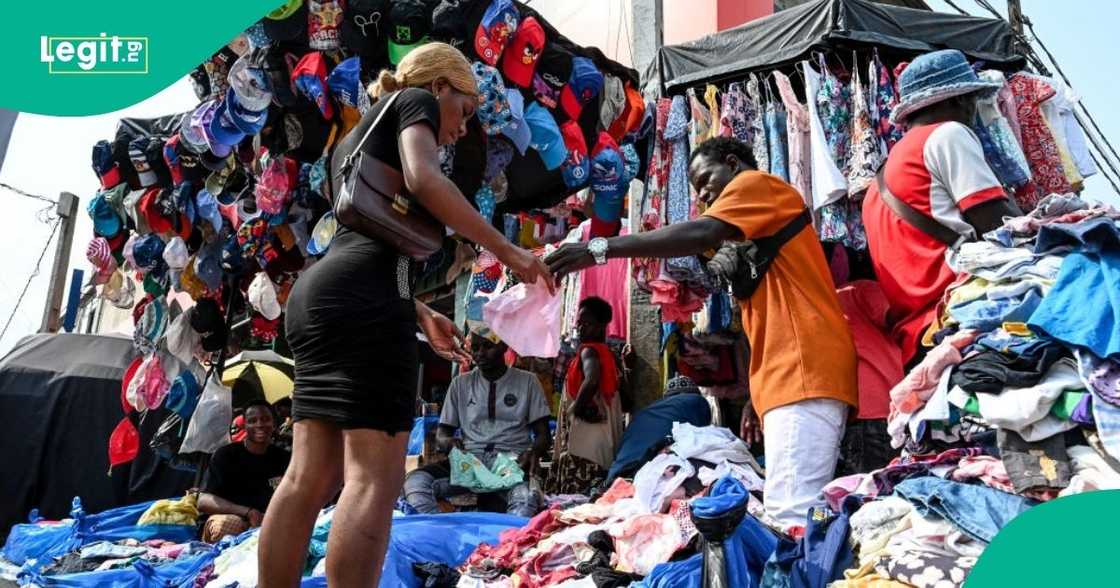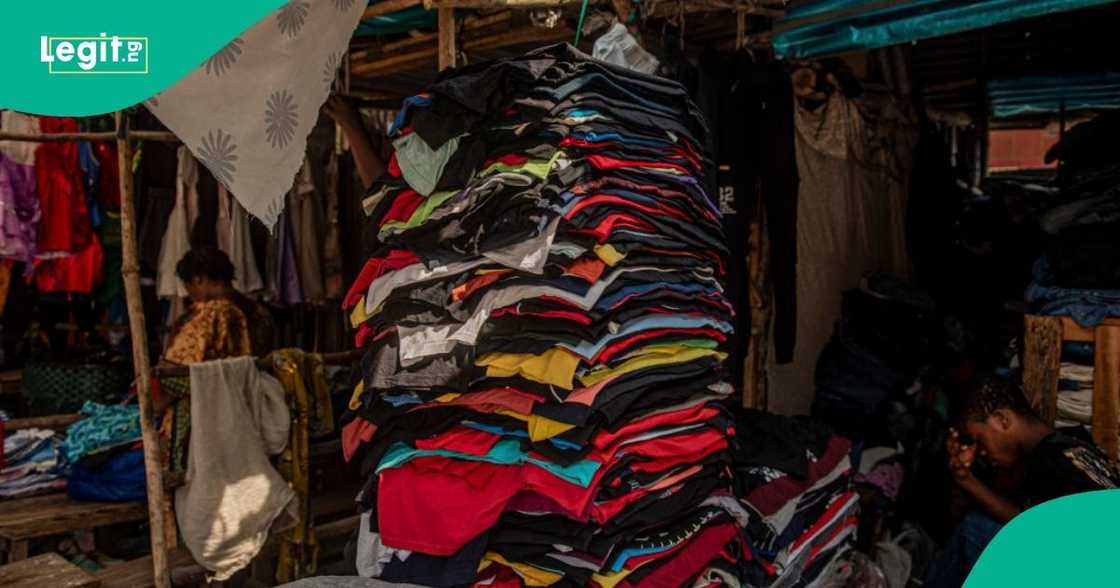Another Country Overtakes Nigeria as Africa’s Largest Importer of Second-hand Clothes
- Kenya has emerged as Africa’s largest importer of second-hand clothing in Africa, beating Nigeria to the top spot
- Massachusetts Institute of Technology (MIT) revealed in its data that Kenya imported $298 million worth of second-hand clothing in 2023
- The figure reportedly exceeds Nigeria’s record, which represents a 12.45% increase from $265 million in 2022
Don't miss out! Join Legit.ng's Sports News channel on WhatsApp now!
Legit.ng’s Pascal Oparada has reported on tech, energy, stocks, investment and the economy for over a decade.
Kenya has emerged as the largest importer of used or second-hand clothes in Africa.
Data compiled by the US Massachusetts Institute of Technology (MIT), disclosed that Kenya imported $298 million worth of second-hand clothing in 2023.

Source: Getty Images
Kenya surpasses Nigeria in second-hand clothing imports
The figure surpasses Nigeria’s record, making Kenya Africa’s leading buyer of okirika clothing, the local name in Nigeria and mitumba in Swahili.
The imports represent a 12.45% increase from $265 million in 2022 as shipments of used clothing continue to hit Kenyan markets, meeting the demand for affordable clothing.

Read also
Nigeria discovers new crude oil blend, exports commodity to Europe, Dangote to import 122m barrels
Kenya’s second-hand clothing dealers import various materials, including underwear, dresses, skirts, trousers, and shoes.
They also import other used textiles such as beddings, towels, curtains, fabric, scraps, and industrial rags.
According to reports, MIT’s Observatory of Economic Complexity shows that in 2022, the East African country’s imports of second-hand clothing and textiles were almost equal to Nigeria’s $265 million, with South Africa ranking third in the category with $261 million in imports.
South Africa ranks third in Africa
Reports say in 2021, South Africa emerged as the leading importer of used clothes and textiles, despite the country’s strict ban on imports, except for manufacturing industrial wiping rags or donating to registered charities.
Despite Nigeria’s ban on used clothes imports, experts say that the country continues to smuggle used clothes from neighbouring countries.
Ghana ranked as the second-largest importer of second-hand clothes in 2023, with GHC30.4 billion, while South Africa came third with Sh29.4 billion, Uganda at Sh27.2 billion, and Nigeria at S27 billion.
Used clothing imports to grow
Experts say the demand for used clothing in Kenya is expected to grow after Kenyan lawmakers removed two taxes, the Import Declaration Fees (IDF) and the Railway Development Levy (RDL) via the Tax Laws Act 2024.
The country’s manufacturers have reportedly opposed the changes, with officials from the Ministry of Trade denying the amendments, claiming they were sneaked in by lawmakers at the committee stage.

Source: Getty Images
Reports state Kenya’s growing reliance on imported second-hand clothes contrasts with steps taken by its neighbours such as Uganda, Rwanda, and Ethiopia which have introduced restrictions on second-hand clothing to promote local industries.
Dangote Refinery begins producing propylene for textiles
Legit.ng earlier reported that the Manufacturers Association of Nigeria (MAN) has revealed that Dangote Refinery’s production of polypropylene, a key product in plastic-making, will revive Nigeria’s comatose textile industry and save the economy $267 million in import costs.

Read also
Crude oil prices surge amid Trump’s tariff threats, Dangote, others move to import $8.5bn worth
MAN’s Director-General, Segun Kadir-Ajayi, stressed the struggles of the textile sector, a once-thriving industry, which employed over 25,000 workers in the northern region.
Kadir-Ajayi disclosed in a recent television interview that several companies were forced to shut down due to the absence of polypropylene production and the scarcity of FX for imports.
PAY ATTENTION: Сheck out news that is picked exactly for YOU ➡️ find the “Recommended for you” block on the home page and enjoy!
Source: Legit.ng



